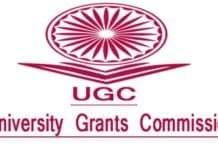Designation/Position- VAIBHAV Fellowship Call
Government of India invites applications for VAIBHAV Fellowship Call-2023 from eligible and interested candidates
About- Government of India had organized Vaishvik Bharatiya Vaigyanik (VAIBHAV) Summit to connect Indian STEMM diaspora with Indian Institutions. The summit was attended by more than 25,000 attendees. 230 panel discussion sessions were held over 23 days on 18 Verticals (research areas) and 80 Horizontals (sub-research areas) (see more details in following sections). Indian STEMM diaspora from more than 70 countries had participated in the deliberations.
Research/Job Area-
Research areas under which applications may be submitted
Proposals are sought in select identified verticals and horizontals of VAIBHAV (as mentioned in the preamble):
- Quantum Technologies: Quantum Communication; Quantum Computing; Quantum Sensing and Metrology; Quantum Materials and Devices
- Artificial Intelligence and Machine Learning: Foundation of AI/ML; AI/ML and Signals; AI for Social Good; AI and Robotics
- Computational Sciences: High Performance Computing Architectures; Computational Atmospheric Sciences; Cyber Physical Systems
- Data Sciences: Data Science Project Management; Data Science Infrastructure, Deployment and Hosting; Data Privacy and Security; Data Science Education; Data Science Applications
- Photonics: Photonic Devices; Optical Imaging and Bio-photonics; Photonic Materials and Sources; Nano-photonics; Integrated Photonics and Communication
- Energy: Future Electricity Systems; Sustainable Mobility Technologies; Advanced Fossil Technologies; Sustainable Future Fuels
- Electronics and Semiconductor Technologies: Semiconductor Materials and Process Technologies; Semiconductor Devices: Physics and Technology; Electronic Circuits and System Design
- Communication Technologies: Cellular Evolution 5G and Beyond (THz Comm); Communication Technologies for IoT/CPS; High Speed Optical Communication – backbone networks; Cognitive Technologies for Futuristic Communication
- Aerospace Technologies: Aerospace Systems and Design; Propulsion Technologies; Flight Structure and Integrity; Modeling and Simulations; Unmanned Aerial Systems and Countermeasures
- Materials and Processing Technologies: Structural Materials; Materials Recycling & Purification; Advanced & Functional Materials; Catalytic Materials & Processes; Computational Materials Science
- Earth Sciences: Atmospheric Science; Polar Science; Ocean Science/Technology; Geo Science/Technology
- Environmental Sciences: Air Quality Management; Water Quality Management; Soil and Waste Management; Carbon Sequestration and Biodiversity Conservation; Climate Change
- Advanced Manufacturing Technologies: Smart Manufacturing, IoT, Digital Manufacturing; Additive Manufacturing; Precision/Micro-nano Manufacturing/Surface Engineering; Industrial Machines, Robotics/Automation; Speciality Products Manufacturing
- Health, Medical Sciences and Biomedical Devices: Advanced Technologies in Health Care; Precision Health; Holistic Health; Remote and Rural Health – Reaching the unreached
- Pharmaceuticals and Bio-Technology: Biotherapeutics and Biosimilars; Industrial Biotechnology; Infectious Diseases/ Disease biology; Drug Discovery, Repurposing and Drug delivery
- Agricultural Sciences: Precision Agriculture; Sustainable and Climate Smart Agriculture; Food Safety and Nutritional Security; Climate Resilient Livestock, Veterinary Therapeutics and Zoonoses control, Nanotechnology in sustainable agriculture and metabolic biology, Modern Fisheries and Aquaculture and seed production, Genome editing, Robotics, farm automation, Digital Agriculture
- Social Sciences for SDGs: Behavioral Community Approaches & its impact on Societal Development; Societal aspect of Technology Development with cause; Socio-Economic aspect of Development
- Management: Fostering academic collaborations; Mechanisms to increase R&D outputs from Indian institutions; Business innovation; Entrepreneurship for growth; Management of New-Age (Knowledge) Organizations; Making India R&D center of the world / Making India Center of Practice-Oriented Management Knowledge
Location- India
Eligibility/Qualification–
Eligibility: (For applicants – VAIBHAV Fellow)
- Non-Resident Indian (NRI), Persons of Indian Origin (PIO) and Overseas Citizen of India (OCI), currently working abroad
- Ph.D/M.D/M.S/M.Tech degree from a recognized University
- Engaged in active research
- Working/worked in Institute/University (in regular/tenure employment) for at least 5 years or more.
[Desirable: top-200 QS World University Ranking (subject-wise)]
OR
Working in Industry or Research Laboratories of repute in abroad for at least 5 years or more (but should not be PhD or Post-doctoral fellow)
Eligibility: (For host Indian Institutions)
- Higher Educational Institutions / University ranked in top 200 in NIRF overall rankings or having NAAC ‘A+’ grade or above
and/or
- Public funded Scientific Institutes/National Laboratories.
Job/Position Description-

VAIBHAV Fellowship envisages a collaboration between scientists of Indian Diaspora with Indian Higher Educational Institutions (HEIs), Universities and/ or public funded Scientific Institutions. The VAIBHAV Fellow would identify an Indian Institution for collaboration and may spend up to two months in a year for maximum 3 years.
Emoluments for the Fellow:
- Fellowship in INR 4 Lakh, for minimum 01 month and maximum up to 02 months per year for
a period of maximum 03 years,
- International Travel from place of work in parent institute to place of work in India in business
class once a year,
- Fully furnished Accommodation in guest house or hotel up to Rs.7500/- per day
- Contingency Rs.1,00,000 per year for research expenditure in India.
- Domestic Travel (economy class) for academic purposes up to two Indian academic/ scientific institutes in a year
Institutional Financial Support:
In addition to the emoluments to VAIBHAV Fellow, the financial support (up to Rs 5.00 lakhs per year for 03 years) will be given to host institution to facilitate the VAIBHAV fellow for research work as per DST norms. This funding will cover the following expenses in connection with a project;
- Consumables and Accessories,
- Contingency
- Institutional Overhead
Expectations from the VAIBHAV Fellow:
- Sharing the Best Practices on research and translation of research, incubation etc.
- Build long term connections,
- Connect Indian Students to the foreign faculty/scientists
- New approaches to Research processes and futuristic technologies
Expectations from Host Institution
The Indian institute will host the VAIBHAV Fellow and provide office/lab facilities, consumables, access to lab equipment, facilitation for various infrastructure support and any other support required by the VAIBHAV Fellow during his stay. The following activities are expected to be performed by the host faculty/scientist:
- Will start a project/technology translation/start-up/incubation which should be aligned with the national priorities / missions
- Would collaborate with the VAIBHAV Fellow during his visit and continue further interaction
- The host institution would implement the project within 3 years in consultation with VAIBHAV Fellow.
- The host Institution would submit the periodic progress report and financial documents to DST at the end of each year and a project completion report at the end of 3rd year. The reports need to be jointly prepared by the host and the VAIBHAV Fellow.
- Host institute will adapt the shared best practices
- Will build the long-term research connections with the VAIBHAV Fellow
- Expected to develop a new approach to research processes, prototype, new technologies/innovation etc.
How to Apply-
Application should be submitted to DST by Host Indian Scientist through on-line E-PMS Portal of DST only. Please note following important application instructions:
- Host Scientist need to apply on behalf of the Indian Diaspora as DST would release the funds to the host Institution which will be reimbursed to the fellow by the host Institution.
- The applicant can apply online by using the following link https://onlinedst.gov.in/Projectproposalformat.aspx?Id=2317 and should submit completed application with all relevant information through e-PMS portal of the DST. Applications would be received in on-line mode (through ePMS) only. Physical or e-mail applications will not be considered.
Last Date for Apply– 15 March 2024
- Launch of VAIBHAV fellowship at DST websites: 23 January 2024
- Deadline to submit Application in current cycle: March 15, 2024 (5:00 PM IST)
You can get our Regular updates on Telegram, also
Find or Post Research Project PositionS – Researchersjob Board
See Also: Motivation Letter for PhD, Postdoc, and Other Research Positions
Whitesmoke Grammar Checker Online – Improve Your Research Writing Skill – Alternative to Grammarly
How to write a literature review: Tips, Format, and Significance
Research Proposal How to Write: Detail Guide and Template







